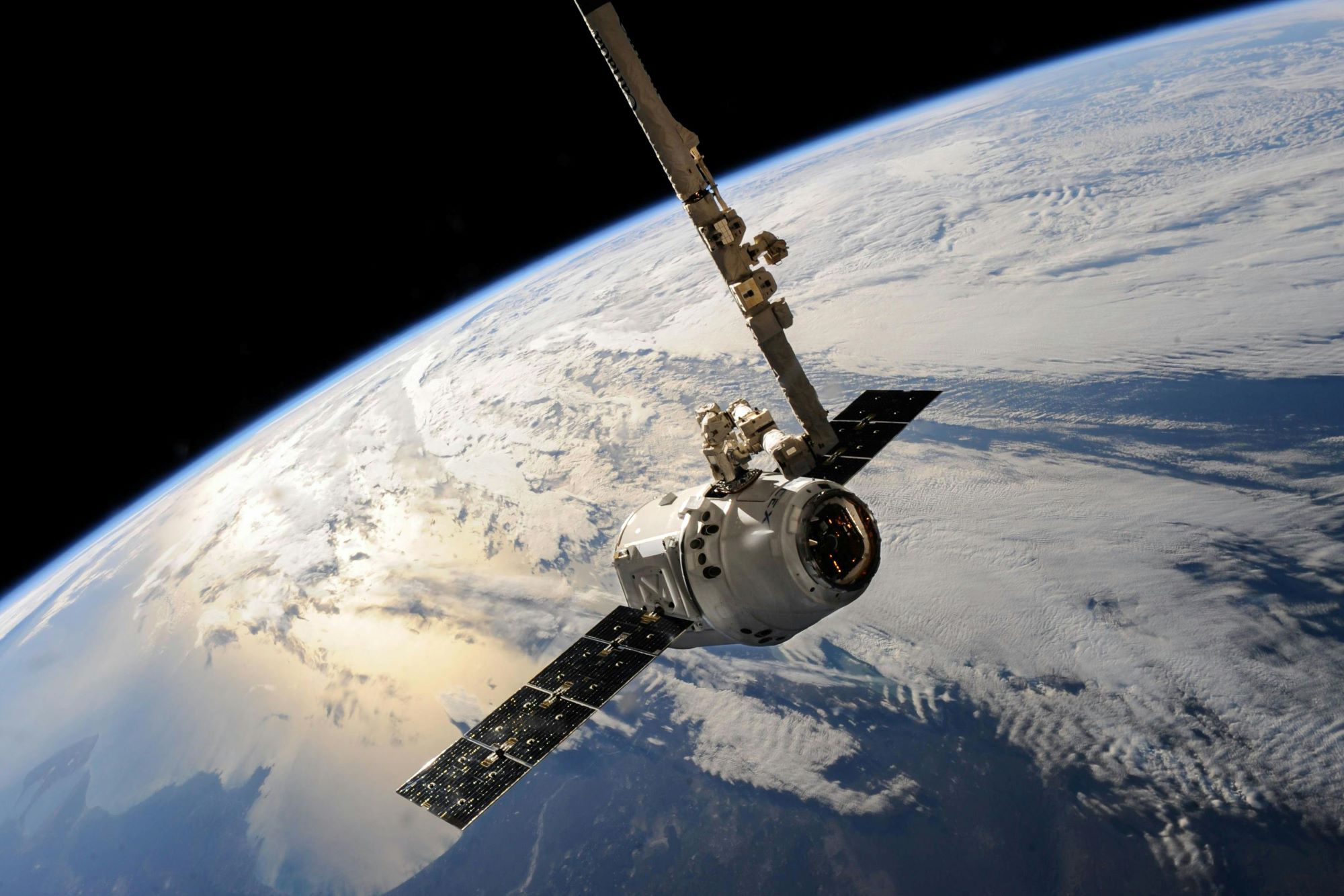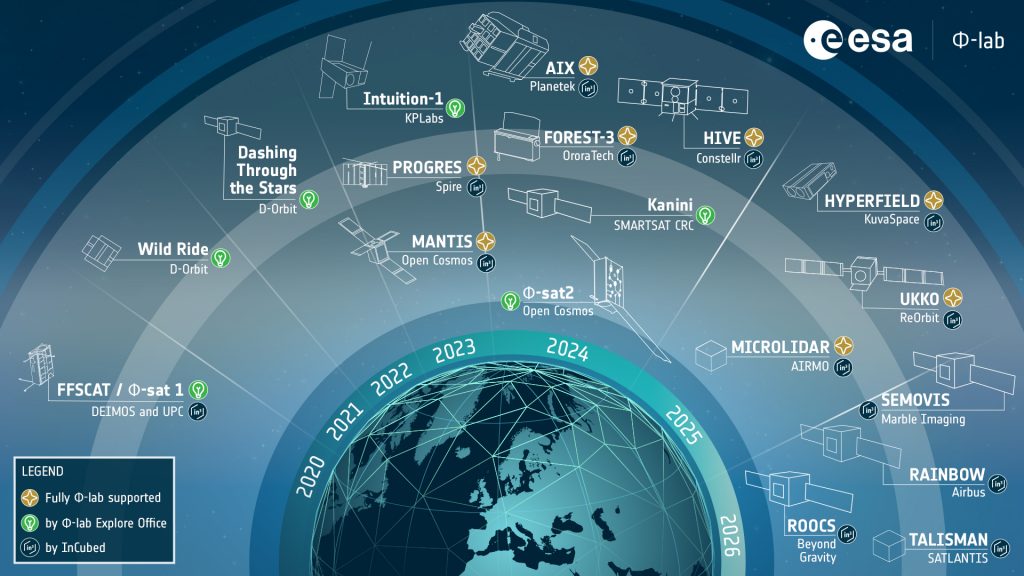EO MakerSpace: crafting the future of smarter Earth observation systems



The Earth observation (EO) domain is undergoing a disruptive transformation featuring onboard intelligence and innovative sensing capabilities. With the support of InCubed, ESA EOP co-funding programme led by Φ-lab, IngeniArs is implementing EO MakerSpace – an initiative dedicated to AI on edge for the development of EO smart sensors.
The space sector is currently experiencing a technological and business evolution driven by increased demand and specialised advancements, such as onboard intelligence. Through the use of advanced AI techniques to process information directly on spacecraft, onboard intelligence promises to deliver more efficient, agile, autonomous, and reconfigurable Earth observation (EO) systems. ESA Φ-lab has a track record of developments in this area, as depicted below.

The latest research efforts have been committed to exploring the use of AI on edge for EO applications, such as the early detection of natural disasters, vessel incidents, and gas leaks. Onboard intelligence is also capable of identifying low-quality data, like cloud-covered satellite data and remote sensing images with limited information of interest, discarding them to save downlink data bandwidth to the ground station.
Leveraging the full capabilities of AI on edge in EO systems needs the development or enhancement of both space-related software and hardware. These improvements are essential for seamless integration with innovative sensors, as well as for preprocessing, calibrating, and correcting sensory data to guarantee the accurate performance of AI algorithms. To cope with the limited power and energy budget in space, it is essential for hardware and software design to work in tandem to maximise energy efficiency.
To achieve these goals and with a focus on the Italian ecosystem, ESA InCubed is partnering up with IngeniArs, a company specialised in the development of innovative high-tech electronic and informatics systems, in the aerospace, healthcare, cybersecurity and AI domains. IngeniArs has been developing GPU@SAT, a hardware/software ecosystem for space systems dedicated to AI and Computer Vision applications.
This contract is focused on the rapid and responsive prototyping of core elements of smart EO payloads within the GPU@SAT ecosystem, based on joint software and hardware developments. IngeniArs will coordinate the elements of individual (sub-)activities, while ESA InCubed will oversee and expedite the approval process. IngeniArs will be responsible for managing each (sub-)activity development with suitable entities.
Italian individuals, start-ups, SMEs, LSIs, university spin-offs and any innovative entities are welcome to apply and participate in the development of EO payloads.
Activities can be developed within the following domains: algorithm optimisation and software abstraction, sensor selection and integration, onboard data compression, smart sensor management and AI-based autonomous navigation. To facilitate the development of these activities, the GPU@SAT ecosystem will be implemented on a representative device, creating a dedicated development kit – the GPU@SAT devkit. To know more about these activities and to apply, visit the dedicated IngeniArs project webpage.
Giuseppe Gentile, CEO of IngeniArs, comments: “At IngeniArs we are very proud of leading this project. It will be a very important moment to gather the Italian ecosystem around the hot topic of ‘enabling Artificial Intelligence on-board’. We will make our GPU@SAT platform available for the development of applications and modules within a fully representative space environment, and we are very excited to see the results.”
This initiative will offer the EO ecosystem a report with the overall findings, including improved mechanisms to spur innovation and possible demonstrations or pilots, followed by a technological roadmap with the remaining open questions and technical gaps.
“The integration of AI algorithms with specialised hardware and software co-design can accelerate the future of Earth observation missions, leading to substantial reductions in time, costs, and the need for human resources while improving performances, latency time, and missions’ autonomy” comments Michele Castorina, Head of the Φ-lab Invest Office. “This collaboration with IngeniArs aligns with the InCubed mission to foster innovative technologies in the space industry, improving the efficiency and agility of autonomous EO systems through cutting-edge AI techniques.”
To know more: ESA InCubed, IngeniArs
Photo courtesy of Pexels/SpaceX
Share